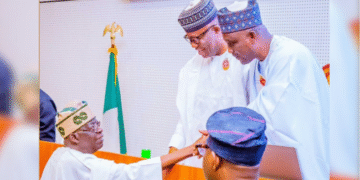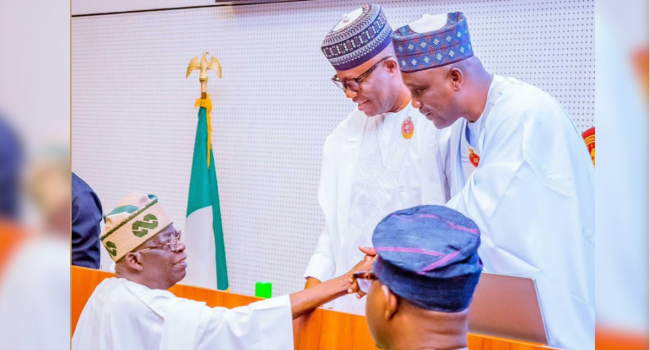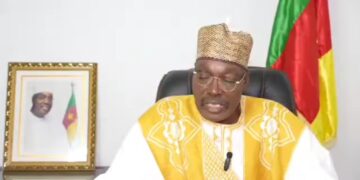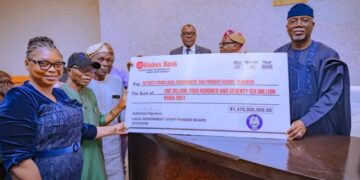![]()
In a bid to further deepen Nigeria’s democratic culture, the Senate has revealed plans to initiate legislation that would formalise an annual presidential address to the nation every June 12, a day widely recognised as symbolising democratic resilience in the country.
The Senate Leader, Senator Opeyemi Bamidele, made the disclosure on Tuesday while speaking to journalists in Abuja. He said the move is part of efforts to honour the historical significance of June 12, the day Nigeria now celebrates as Democracy Day.
According to him, “We are hoping to bring a bill soon to institutionalise the President’s address on June 12 because of its historical importance. There can’t be a better time to address the nation through the parliament than on June 12, especially since it is a joint sitting of the National Assembly.”
In addition to the proposed presidential address, Bamidele stated that the National Assembly is also working towards designating the complex as the official venue for future presidential swearing-in ceremonies.
“In that bill, we’re also proposing that the swearing-in of the President and Commander-in-Chief of the Armed Forces of Nigeria and we believe, come 2027, it would be President Bola Ahmed Tinubu again should take place within the premises of the National Assembly,” he added.
Budget Implementation Extension, Constitution Amendment Also On Agenda
Beyond the symbolic importance of June 12, the Senate leader noted that the red chamber is also reviewing the implementation status of the 2024 national budget, especially its capital expenditure segment.
“We have to sit and assess the full implementation of the 2024 budget. We will further extend the capital expenditure timeline while ensuring that the 2025 budget is fully implemented,” Bamidele explained.
On the ongoing constitution amendment process, Bamidele, who also serves as the Vice Chairman of the Constitution Review Committee, acknowledged delays but gave assurances that the process was nearing its final stages.
“We’ve done almost 70 percent of the work before going public. We will be holding zonal public hearings soon, followed by a joint public hearing with the House of Representatives. Our target is to complete this process before the end of the third legislative year,” he stated.
Symbolism Of June 12 Continues To Resonate
June 12 became nationally significant following the annulment of the June 12, 1993, presidential election widely believed to have been won by Chief Moshood Kashimawo Olawale (MKO) Abiola by the then military Head of State, General Ibrahim Babangida. The move sparked national outrage, massive protests, and led to years of military repression.
In 2018, former President Muhammadu Buhari officially declared June 12 as Nigeria’s Democracy Day in recognition of Abiola’s victory and the symbolism of that election, which is still regarded by many as the freest and fairest in the country’s history.
Interestingly, in a dramatic turn of events, Babangida publicly admitted in February 2025 through his memoir that Abiola indeed won the annulled election the first time he had done so in 32 years.
As Nigeria celebrates 25 years of uninterrupted democracy since the beginning of the Fourth Republic in 1999, efforts like the Senate’s proposed legislation aim to reinforce democratic traditions and honour the sacrifices that made them possible.
“We must never forget the path that brought us here. Institutionalising this history helps to remind the generations coming after us of the price paid for democracy,” Bamidele noted.

























